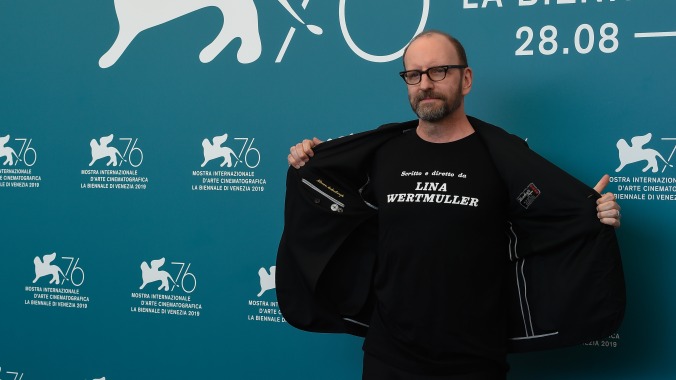Steven Soderbergh on why he stopped working as a writer/director: “It's fucking hard”

It’s been 20 years since Steven Soderbergh’s The Limey arrived, a taut achronological revenge story tucked neatly between Out Of Sight and Erin Brockovich on the director’s filmography—a hell of a hot streak. Soderbergh spoke with Rolling Stone’s David Fear on the eve of the release of a remastered Digital 4K Ultra HD edition, arriving just in time to mark that anniversary, a sprawling conversation well worth reading in full. (Yes, they touch on the Scorsese/Marvel/what is cinema debate—thoughtfully so.)
In the midst of this discussion, Soderbergh mentions that in the wake of the success of Sex, Lies, And Videotape, he had to “come to terms with what kind of filmmaker I was.” And then he lets this drop: “Letting go of the writing part of it was a big help.”
Fear, naturally, follows up on that nugget. The answer, more or less, was that sure, he can write, but he’s not a writer, and it’s too damn hard to do when you don’t have to: “[I]f you’re not Paul Thomas Anderson, don’t put yourself through hell for no reason.” It’s interesting enough that we’re just going to include his answer in full:
I wrote to get my foot in the door, but in having a frank conversation with myself, I realized, “You’re not really a writer.” You’ve written, but by the standards by which I judge writers, then, no. Lem Dobbs is a writer. I am not. It’s a trap that young filmmakers fall into. “I have to write and direct everything I do.” Well, that’s fine, only . . . if you’re not Paul Thomas Anderson, don’t put yourself through hell for no reason. There’s a reason he only makes movies every what, four years or so? To go to the well to write original screenplays — it’s fucking hard. And I realized my well wasn’t very deep. The best use of my skill set as a filmmaker was to work with writers instead of being a one-man band. That changed everything for the better.
The other thing was just realizing that I’m really a synthesist. Some guys are originals. Look at Spike Jonze — there’s nobody like him, you never know what’s coming next, it’s always inventive and smart and funny. He’s just unique. And it would be a waste of my time and other people’s money to think that I was Spike Jonze. I can’t do what he does. I can tell a story, however. I can work with actors on performances, and I can find a visual approach that supports those two things. It was freeing to figure this out, because that kind of approach allows for continual self-reinvention. You can slough off any skin you were wearing, from here to there.
So, yeah, that period from ’89/’90 to ’97, in which I made five movies in a row which people did not like and did not see — it was actually very necessary to me. They were steps for me to come to this place where I could have that run. Luckily, I never face-planted off a 30-foot board, you know? It was more like I got pushed into a pool and it didn’t look very good [laughs].
Fear and Soderbergh cover everything from the lionization of the ’60s to the amazing year in cinema that was 1999, and as said above, it’s well worth reading in full.